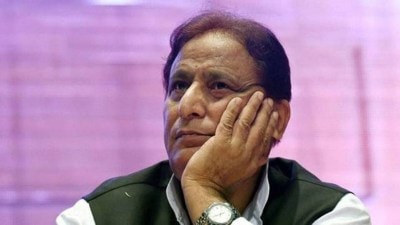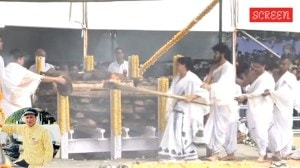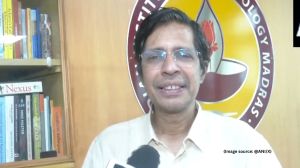Reformer Rao regrets reluctance to recognise his role
NEW DELHI, JAN 7: It was the most loaded comment of an evening full of loaded comments, and it came softly into a packed conference room a...

NEW DELHI, JAN 7: It was the most loaded comment of an evening full of loaded comments, and it came softly into a packed conference room at the India International Centre, with the audience in rapt attention. "I want all the finance ministers (Manmohan Singh, Yashwant Sinha and Chidambaram) to sit down and analyse the policies implemented by the government at the time when Chidambaram was a cabinet minister in the early 1990s," said former Prime Minister P V Narasimha Rao, without a smile on his face, but with his tongue firmly in cheek. "That is the most indirect way in which I can refer to the policies of my government without refering to myself."
Never before in the last decade has Rao complained publicly for not being given the full credit for the economic reforms initiated by his government. This was an unexpected opportunity, he tried to clarify, not something he would have liked to seek since he had decided to retreat into oblivion.
"I would not have come to this meeting if it had not been for Arjun and if I had not happened to be in Delhi today," he clarified. Perhaps alluding to the fact that two of the invited speakers, former finance ministers Manmohan Singh and Pranab Mukherjee had failed to turn up for different reasons. "Since I was free and I am here, I came," he said. Rao was the chief guest at a seminar to release and discuss a book on economic reforms written by Dr Arjun Sengupta, former member of the Planning Commission.
"A finance minister is a zero, without that `one’ standing next to him. It is only the Prime Minister who can give a finance minister the political clout he needs to push difficult policies through." A second claim.
"No political party has been voted out because of economic reforms. They may have lost elections for other reasons, not due to economic reforms. The economic policies introduced since 1991 have finally made India truly independent. In 1947 India attained political freedom, but real freedom came when we had the courage to do what we felt was right in 1991." A third claim.
"I am convinced that economic reforms implemented in the early 1990s have served the country well. These policies will make India a great nation." A fourth claim.
Finally, "I urge all the finance ministers from different political parties to come together and analyse what we have done in the last decade, see where we were right and where we were wrong. Political parties will oppose one another, but the finance ministers can take an objective view and ensure that there is a national consensus on economic reforms."
After four years of reticence and wavering, not clear in his own mind whether he should assert ownership of his policies or not, Rao stepped out of the shadows to finally lay claim to providing the political leadership to the launch of the "new economic policies" in 1991, and assert that these policies have and will serve the country well.
Rao has shied away from doing this repeatedly. He has consistently refused to grant interviews on his economic policies to the financial media at home and abroad in the last four years. He has refused to write articles for newspapers, journals and edited volumes on economic issues. Save a singular appearance at an Assocham seminar where he actually made some contrarian remarks, he has never been so outspoken on economic policy issues.
His comments gain additional importance at this stage since the Congress Party is in the throes of a major debate on economic reforms. One of the main advocates of a return to a more "left of centre" agenda, Mani Shankar Iyer, sat directly behind Rao and heard the speech out in full. Barely a month ago Rao had expressed some doubts on disinvestment and the policies of the National Democratic Alliance government to Dr Manmohan Singh. At the time Dr Singh saw this as a retreat from reform on the part of Rao. On the contrary, on Friday evening Rao was in top gear, defending his and Singh’s policies all the way.
Disagreeing with Sengupta, who had advocated greater public investment in the infrastructure sector, Rao said, "What was the use of all what we did if we can not get more foreign investment into the infrastructure sector? Let the government invest in education and health."
Interestingly, while Sinha and Chidambaram devoted a considerable part of their time to a discussion of questions of equity, poverty reduction and rural development, Rao dismissed these issues as "being with us for a long time". The rich and the poor have been around for a long time, backwardness has been around for a long time, droughts and floods have been around for a long time. India’s problems are old, historic and need to be tackled. But they are not the result of reforms started in 1991. "What we did in 1991 has set the country on the course of real freedom and greatness."
Clearly, Rao had warmed the cockles of all the pro-reformers in the audience. He himself appeared quite pleased with his performance.
Photos



- 01
- 02
- 03
- 04
- 05




























